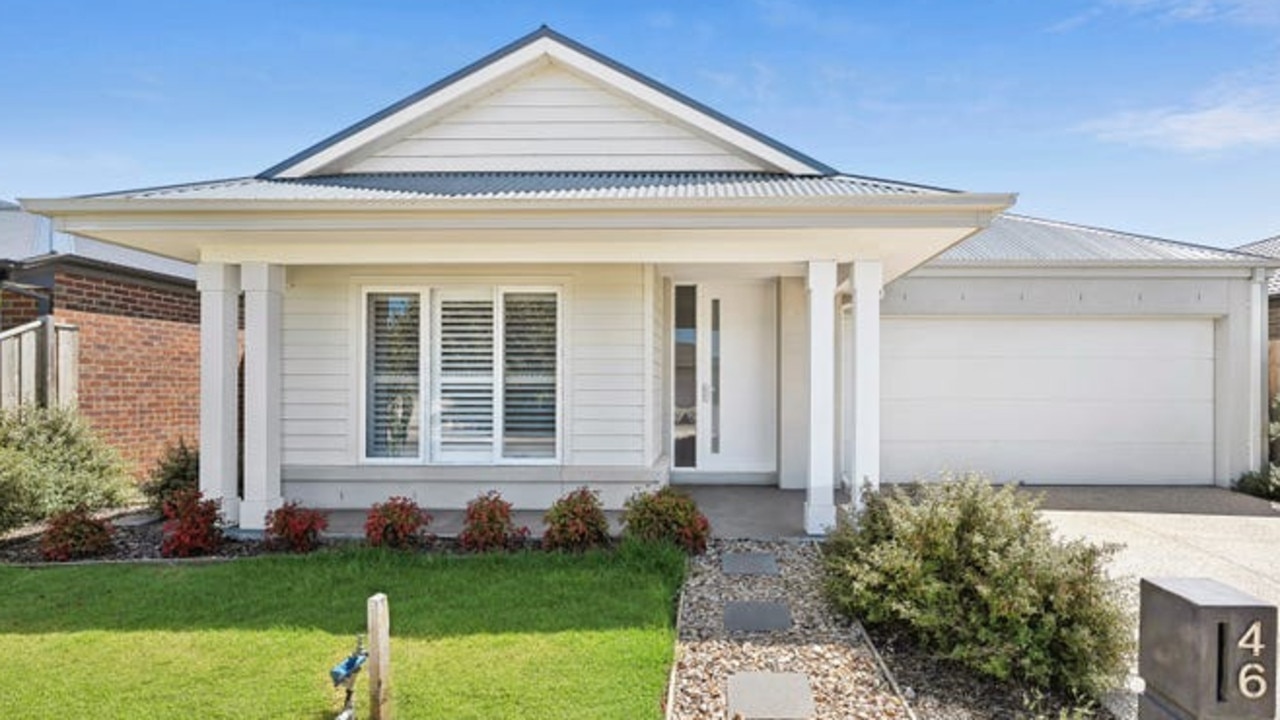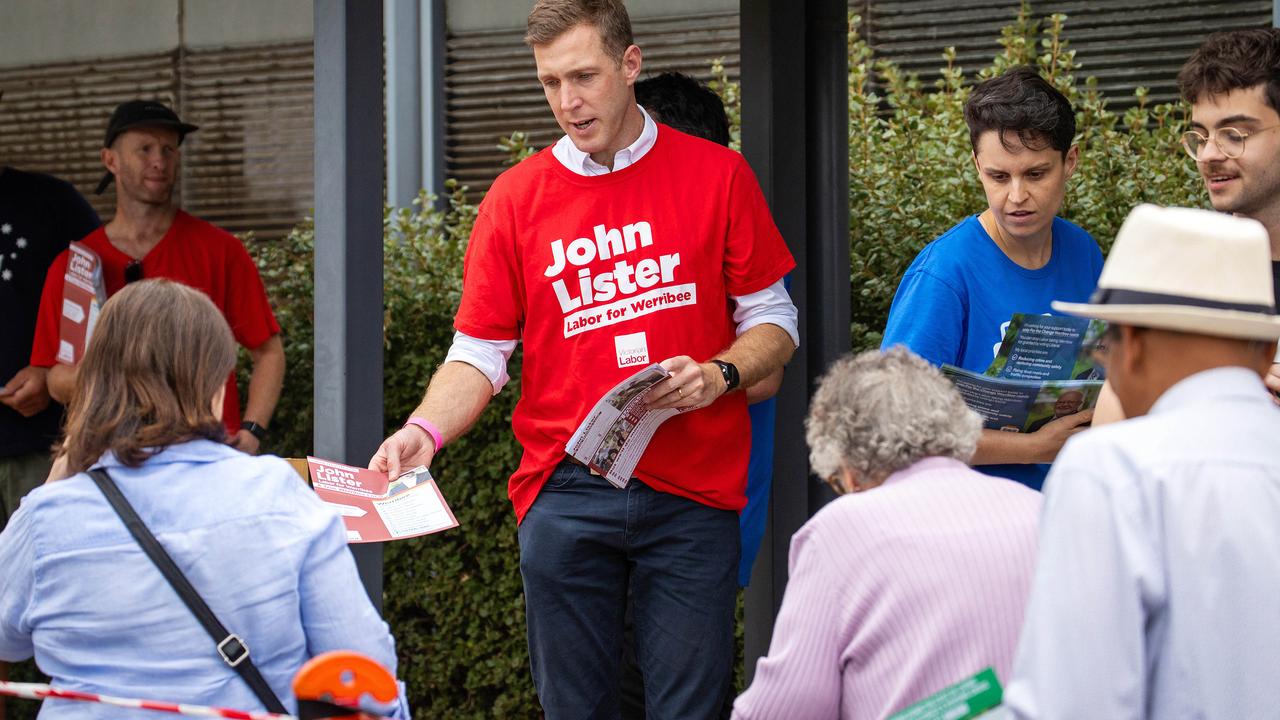Big V interview: How Clare O’Neil juggles family and protecting the nation
Fresh off the Optus outage, the shock ruling to release 148 immigration detainees and the failed Voice campaign, Home Affairs Minister Clare O’Neil opens on the most challenging period of her career.
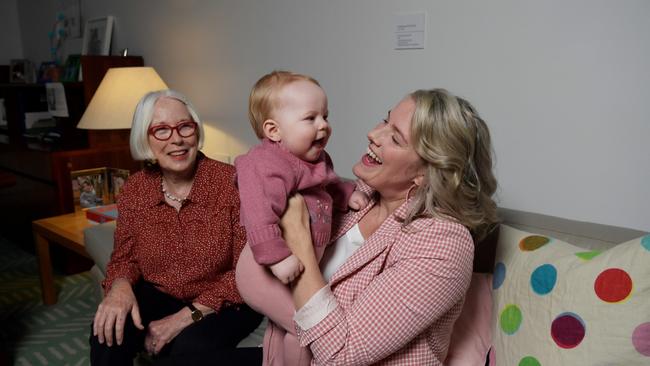
News
Don't miss out on the headlines from News. Followed categories will be added to My News.
Home Affairs Minister Clare O’Neil has not had a day off in almost six weeks.
But she’s not complaining.
Following the failed Voice referendum, Optus suffered a national outage, and she unveiled two of the biggest pieces of policy work of her career – the nation’s landmark cyber and migration strategies.
Then there was her department secretary getting the sack, and the High Court’s shock ruling that saw 148 immigration detainees released into the community despite some posing a risk to the public.
In a wide-ranging interview with the Herald Sun, the mother of three says she’s motivated to work hard and really long hours because she’s “making a difference”.
Battlers, bohemians and radicals
O’Neil, 43, comes from a line of people who she says fight for what they believe in.
In her maiden speech to parliament she talked about the family’s first Australian ancestor, John O’Neil, who arrived in chains after being arrested in London for boxing in the street.
He headed to the Ballarat goldfields in 1853 with his wife and three kids in a bid to escape poverty and joined the Eureka rebellion.
His great-grandson, O’Neil’s grandfather Lou, was a communist and proud trade unionist and was jailed for fighting for rights that she says Australians take for granted today.
Her own parents, Lloyd O’Neil and Anne O’Donovan, were book publishers who had a passion for books about Australia because “they were books about us”.
Some of Anne’s bestsellers were on women’s health, money and politics – “essential to the independence of the modern Australian woman” – and she introduced O’Neil to Australian art and theatre as a little girl.
Her father died from cancer when she was 11, however, his birthday would later be shared with O’Neil’s youngest child, Greta, who was a Covid lockdown baby.
O’Neil went to school at Loreto College in Toorak and continued to be a high achiever during her tertiary studies.
And it was during her teens that her brother Patrick taught her how to play pool – a pastime she now uses to unwind with her husband in their shed after a long day.
She says she wins at least one out of three games, adding it’s “psychological warfare” and sledging is a key part of the strategy.
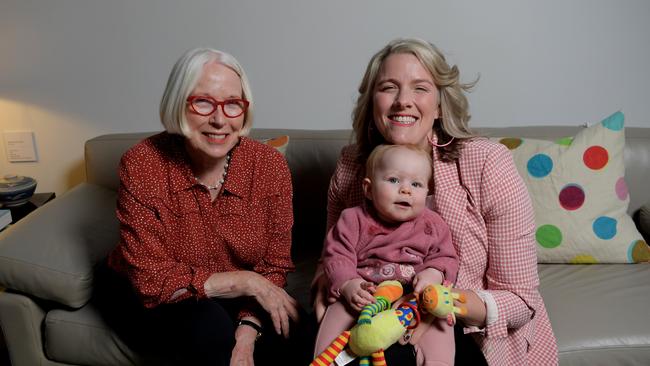
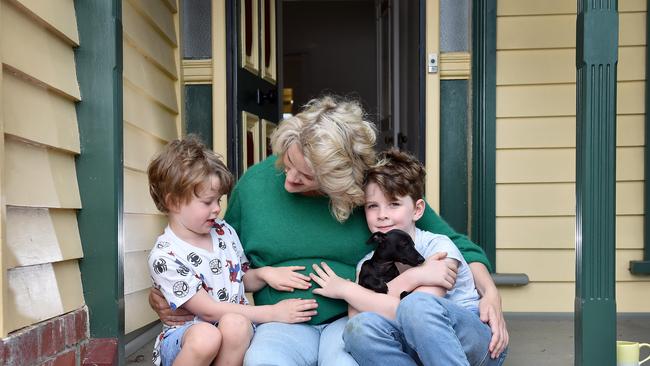
The Crean effect
When O’Neil joined the Labor Party at age 16, former federal Labor leader and Hotham MP Simon Crean was the first member of parliament she met.
He became a mentor and friend, helping her run for Greater Dandenong Council while the 22-year-old was studying at Monash University.
A year later, in 2004, she became the youngest female mayor in Australian history with his endorsement.
She later succeeded Crean – who retired prior to the 2013 federal election – becoming the representative for Hotham which stretches from Oakleigh to Keysborough, and Bentleigh to Mulgrave.
The sudden recent death of Crean, who was travelling in Berlin at the time, had a big impact on O’Neil, who was informed about the tragedy via a flurry of text messages on June 25.
“I just could not believe it,” she says, becoming emotional.
“Simon was so fit and healthy and he was in the prime of his life, he was such a vibrant person.
“It’s been difficult since then because you don’t get a lot of people in politics who you can really rely on or trust and Simon was that person for me. He was a really dear friend and a mentor and I miss him.”
O’Neil, who is a strong public performer, has risen up the ranks over the past decade.
She spent the 2022 election campaign traversing the country, prosecuting the Coalition government’s failures in aged care with her baby, Greta, and mother Anne in tow.
She was elevated to Labor’s cabinet following the election win, becoming the first Home Affairs and Cyber Security Minister.
Working mum
O’Neil says she is dedicated to two jobs – her mission to keep Australia safe, and to being the best mum to Elvis, 10, Louis, 7, and Greta, 2.
This wouldn’t be possible without her husband Brendan, mother Anne, and their “village of support”.
“I don’t have any balance in my life,” she admits.
“All I do is work and look after my kids. I don’t do anything else.”
If she is travelling or doing morning media, O’Neil’s iPhone alarm is set for 4.15am, leaving her husband Brendan to get the kids ready and out the door.
“When I do morning TV, my husband sits up with all the kids and watches it. They wave at the TV and say ‘hi mum’ – sometimes I’m in the front yard,” she says with a laugh.
She considers herself lucky if she can get to the gym or a pilates class twice a week – at the moment amid the indefinite detainee debacle she hasn’t been in three weeks.
“What I’m experiencing is a really common thing for Australian mums because it’s very normal now to work,” O’Neil says.
“There’s a lot of pressure to work full time because the cost of living is such a pressure for families.”
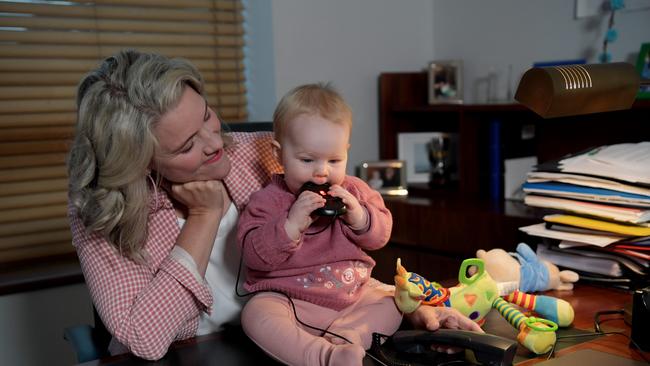
O’Neil’s first experience caring for a child was as a foster parent to a seven weeks premature baby while living in the Northern Territory with Brendan.
She says all that stood between that baby having a chance, or no chance in a “house of violence and chaos” was the government.
O’Neil says Brendan, a doctor, really believes in what she is doing and is her biggest supporter.
But she acknowledges that the time away from her family means he becomes “a single parent for half of the time, which is really tough”.
When parliament sits in Canberra, O’Neil will rise at 4.30am and then work until 9.30pm.
She says the parliament has become more family friendly but she is also more assertive about what she needs to do “to be the best mum”.
“I remember having my first child and being quite apologetic about the requirements of that ... like constantly apologising for having to feed a tiny baby who was 11 weeks old when I was elected to parliament,” she says.
“If politics is not a profession where you can be a good mum, and have a senior role in a government, they’re not going to be able to find people to engage with this.”
At the height of an Optus data breach last year, which affected 10 million Australians, O’Neil took a day of leave from the parliament when one of her children needed an operation.
“I am not going to let my child have an operation without me. And no one who I work with questioned that decision for one single second,” she says.
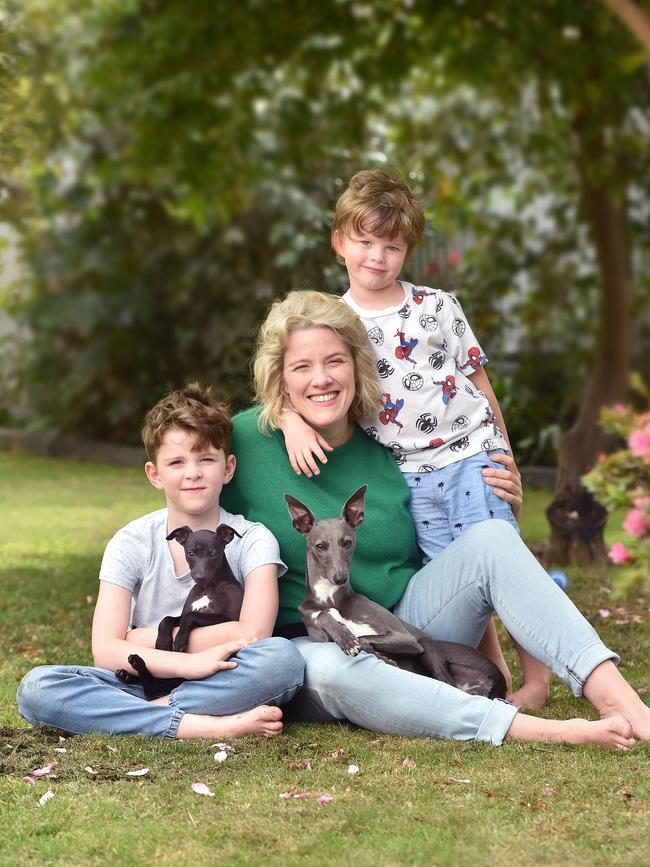
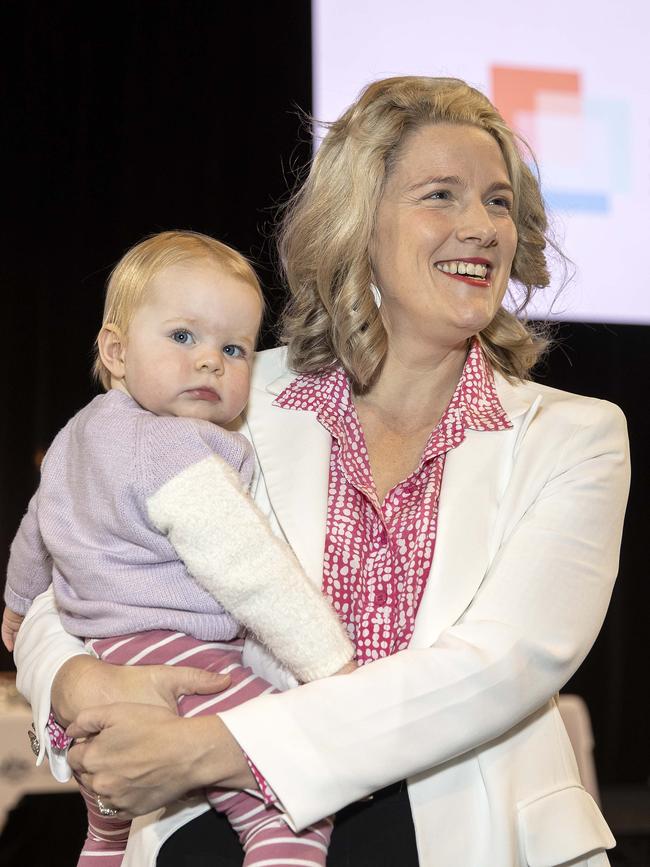
That morning she texted her Liberal counterpart, Victorian Senator James Paterson, so that he could understand why she was absent.
“He texted me back immediately and said ‘family is off limits and I won’t be making any comment about it’,” she says.
“I felt, I guess, supported in that decision. But it was only half a day (offline).”
Prime Minister Anthony Albanese has committed to improving the standards in parliament. But O’Neil says “violent aggression” in the parliamentary chamber continues to be “a real problem”.
“I’ve been there 10 years and I don’t think it’s much better today than when I arrived,” she says.
“That’s something that will change the more women I think coming to the chamber, but it’s taking a long time.”
Attorney-General Mark Dreyfus made headlines last week after he unleashed on a female journalist who asked if Labor owed an apology to the alleged victims of the released detainees.
Asked if the incident was an example of the kind of behaviour that needed to change, O’Neil says Mr Dreyfus “knew that he’d gone too far and he apologised to the journalist”.
“I think that kind of accountability is good and important, and I think he did the right thing,” she says.
No need for charades
It’s a tough job to protect the nation. But O’Neil says she won’t talk tough for the sake of it.
It’s one of her key attacks against Opposition leader Peter Dutton, who she has spent 18 months painting as all talk and no action.
“I don’t feel the need to create a charade,” she says.
“I just go to work every day and I clinically find the ways in which our country is vulnerable. And I fix that one by one.”
In recent weeks, O’Neil has stared down Opposition calls to resign after the High Court ruled that non-citizens could not be kept in indefinite detention, resulting in the controversial release of 148 people.
She says the issue brought a “new level of intensity” but rejects claims of mishandling saying the government “acted faster on this than anything I’ve seen governments do in the past”.
“Within 30 days we passed two very big, substantial changes to the legislative powers of the Commonwealth and we had ... put in place basically a case management process for every one of these people who we had to release,” she says.
O’Neil was the first Labor minister to apologise for the alleged crimes of six detainees, who have been arrested for committing offences including indecent assault, drug possession, theft, trespass, breaching curfew, parole and reporting conditions.
“Before the High Court decision, all these people were in detention because Andrew Giles and I had decided to keep them there,” she says.
“I would have really liked to keep them in detention but ultimately, the High Court made a call.”
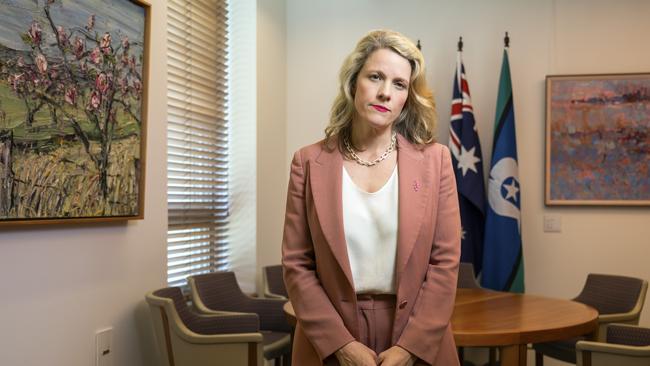
She is also vowing to keep trying to find alternative countries to resettle some of the detainees but warned it was not going to be a “quick win or easy”.
“We do have ... historically a pretty lacklustre approach to finding alternative countries of settlement for people and we need to do more about that,” she says.
Last month, the secretary of her department Mike Pezzullo was sacked after an investigation, prompted by leaked text messages that revealed he had tried to influence the government. It was found he had breached the public service code of conduct at least 14 times.
She says the findings had prompted a reflection on the culture within Home Affairs, and was confident that with the leadership of new secretary Stephanie Foster, they were on a path to fix those issues.
It has been a busy couple of months for O’Neil, who was also engaged in the campaign to create a Voice to Parliament for Indigenous Australians via a referendum – which failed.
O’Neil says she believes people “didn’t like the idea that there was going to be a separate body set up to deal with” indigenous disadvantage.
She says a strong majority of Australians want it addressed. But people wanted to see “the whole parliament deal with that problem and the whole country take responsibility for it”.
“There were powerful indigenous voices in the discussion who didn’t want to see it proceed and that was obviously influential as well,” she says.
Back in Melbourne, O’Neil tries to spend as much time as she can in her Oakleigh electorate office, supporting small businesses when she is buying her lunch, and chatting with constituents in the street.
She also has officials travel to the office – which is sandwiched between a law firm and a bank – to have big discussions about policy and manage crises.
One of the key challenges for O’Neil is keeping one eye on the horizon while tackling immediate threats to the nation.
This week she released the government’s migration strategy, which will reduce Australia’s intake by 185,000 people over the next four years and create new visas to fast-track entry for highly-skilled workers.
She says she hopes the strategy will revive the sense of “prosperity and security” that she believes was dominant during her childhood.
“We’ve got ... declining living standards, it’s virtually impossible to buy a house for young people in our capital cities,” O’Neil says.
“We’ve got to be bolder and work harder to get all of these systems of national power working for the country and that’s what we’re trying to do with the migration system.”




